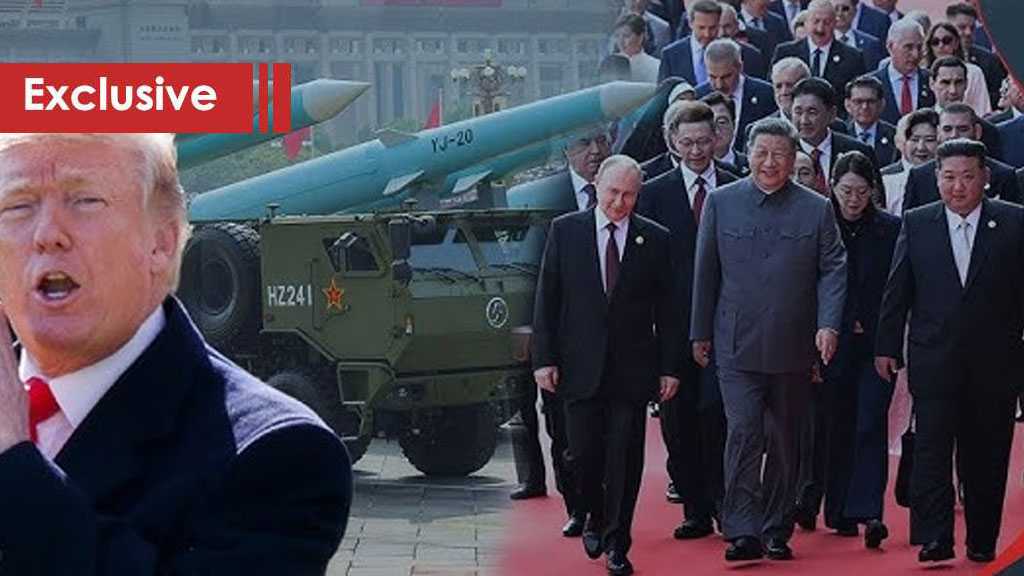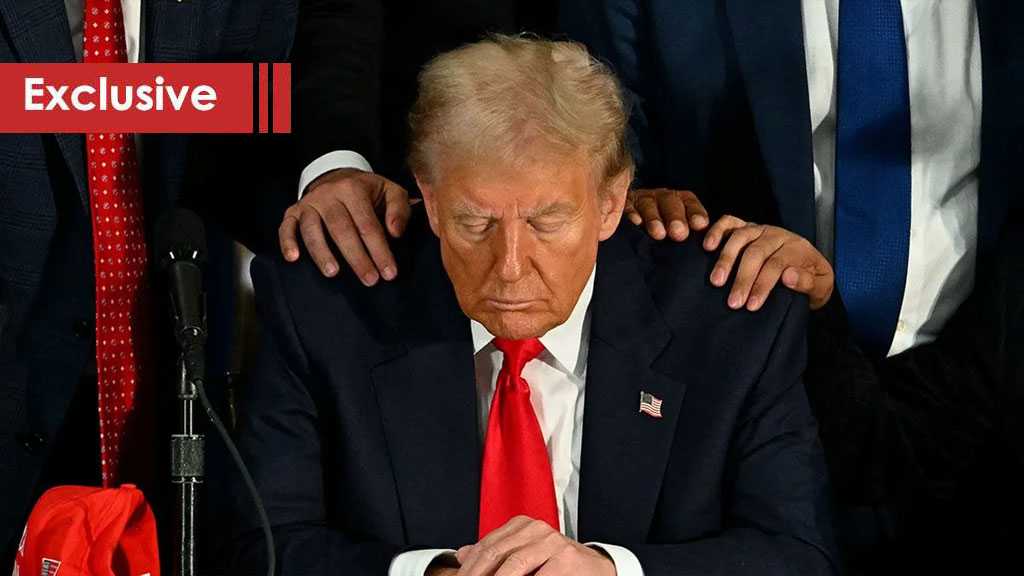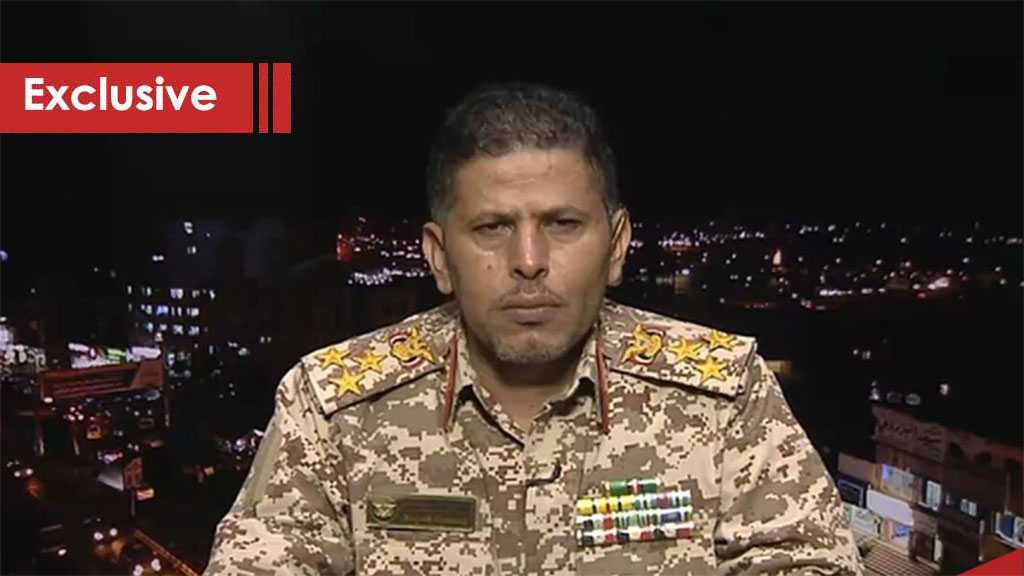
No Disarmament Under Occupation: Sheikh Qassem’s Message to the World

By Mohamad Hamoud
On the night of April 18, 2025, Sheikh Naim Qassem, the Secretary-General of Hezbollah, delivered a speech that echoed across Lebanon and beyond. His remarks came at a tense moment: a US envoy was visiting Beirut, reportedly pressuring the Lebanese government to begin disarming Hezbollah. Local media were abuzz with speculation that such steps might be imminent. Against this uncertain backdrop, Sheikh Qassem sought to reassure supporters of the Resistance. His message was clear—Hezbollah will not disarm as long as "Israeli" forces remain on Lebanese soil.
The speech quickly drew attention from both Western and "Israeli" media. Analysts across the board highlighted Qassem’s uncompromising stance and his framing of Hezbollah’s arms as vital to Lebanon’s sovereignty and defense against continued "Israeli" aggression.
Western Media: Geopolitical Calculations and Domestic Stakes
Western outlets like Le Monde, The Diplomatic Insight, and the Associated Press emphasized the geopolitical undercurrents of Hezbollah’s message. According to Le Monde, Qassem declared, “We will not let anyone disarm Hezbollah or disarm the resistance” against "Israel," asserting that the very idea of disarmament must be “cut from the dictionary.” This defiance, as Le Monde noted, “came in response to mounting US pressure on Lebanon to weaken Hezbollah. Qassem, however, made clear that this was non-negotiable so long as ‘Israel’ continues its occupation of Lebanese territory and what he called persistent “aggression.”
Reinforcing this, the Associated Press reported that Sheikh Qassem opened his speech by stating that Hezbollah’s arms are not on the table for discussion while "Israeli" airstrikes still violate Lebanese sovereignty. “How can we speak of disarmament,” he asked, “when the very reason for our weapons—the occupation and aggression—has not been removed?” With this framing, Hezbollah positioned its arsenal not as a challenge to the Lebanese state, but as a shield defending it from external threats.
Sheikh Qassem also addressed the fragile ceasefire that had recently paused hostilities between Hezbollah and "Israel." While celebrated internationally as a diplomatic success, he offered a sobering counter-narrative. As reported by the Associated Press, he accused "Israel" of violating the ceasefire over 1,300 times—by land, air, and sea. Yet Hezbollah, he said, had exercised restraint out of respect for the Lebanese government’s request to avoid escalation.
The Long War Journal contextualized this restraint as a strategic calculation. According to their analysis, Hezbollah sees itself balancing two responsibilities: complying with Lebanese state authority and maintaining deterrence against "Israel." Sheikh Qassem made it clear that patience should not be mistaken for weakness. Hezbollah’s military readiness, he suggested, remains intact—even if held in reserve for now.
Beyond military strategy, Hezbollah Secretary General dedicated part of his speech to the Palestinian cause, a recurring pillar of Hezbollah’s ideology. As noted by the Long War Journal, he described supporting Palestinian resistance as not only a religious and moral imperative but a strategic necessity. In his words, backing Palestine is an act of faith and identity, deeply intertwined with Lebanon’s own security and dignity.
Domestically, Qassem reminded his audience of Hezbollah’s political integration. He referenced the group’s role in supporting the election of consensus President Joseph Aoun and forming a coalition government. According to The Long War Journal, Sheikh Qassem portrayed Hezbollah as more than a resistance group—as a full stakeholder in Lebanon’s political and social reconstruction. But he also warned that reconstruction aid must not be used as a tool to force disarmament. The group, he insisted, would resist any effort to trade national defense for international funding.
"Israeli" Media: Security Fears and Unyielding Opposition
Meanwhile, "Israeli" media painted a more ominous picture of Sheikh Qassem’s speech. Outlets like’The Times of Israel’ and The Jerusalem Post focused on the security threat posed by Hezbollah’s refusal to disarm. According to The ‘Times of Israel’, Qassem’s vow—“We will not let anyone disarm Hezbollah or disarm the resistance”—was interpreted as a blunt rejection of both "Israeli" and international diplomatic efforts. The message, to many "Israeli" analysts, was that Hezbollah has no intention of scaling back its military posture.
One of the more concerning elements, according to The Jerusalem Post, was Qassem’s assertion that resistance would continue “where it must and where it can.” This was seen as a not-so-subtle warning that Hezbollah was prepared to reengage militarily if "Israel" did not withdraw from disputed Lebanese territories. His statement that “no diplomatic settlement can be reached as long as aggression continues” was interpreted as a declaration that armed resistance would remain Hezbollah’s primary strategy.
"Israeli" media also noted Qassem’s criticism of Lebanese figures who support disarmament, portraying internal dissent as secondary to Hezbollah’s broader resistance goals. As ‘The Times of Israel’ pointed out, Qassem’s speech outlined a conditional approach to the ceasefire: Hezbollah would remain restrained only as long as "Israel" adhered to its obligations. This dual posture—measured yet militant—was seen as Hezbollah keeping the door open to escalation, even while projecting discipline.
A Message Meant for Many
Ultimately, Sheikh Naim Qassem’s April 18 speech spoke to multiple audiences. To Lebanese citizens, it was a pledge of continued defense amid rising foreign pressure. To regional allies, it reaffirmed Hezbollah’s ideological resolve. And to adversaries in "Israel" and the West, it served as a warning: Hezbollah will not be coerced into disarming while it believes its nation remains under threat.
As CNN noted in its coverage of regional developments, the future of the ceasefire and broader peace efforts hinges on more than just political negotiation. Unless underlying issues—like territorial disputes and violations of Lebanese sovereignty—are addressed, Hezbollah is unlikely to change its stance. Sheikh Qassem’s speech, then, may be less a turning point than a clear signal: the conflict, at least in Hezbollah’s eyes, is far from over.
Comments



